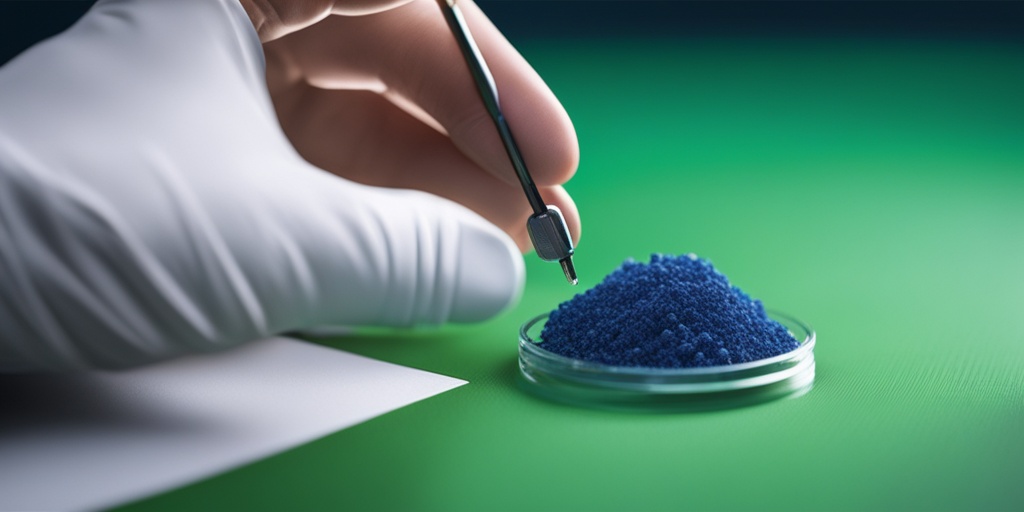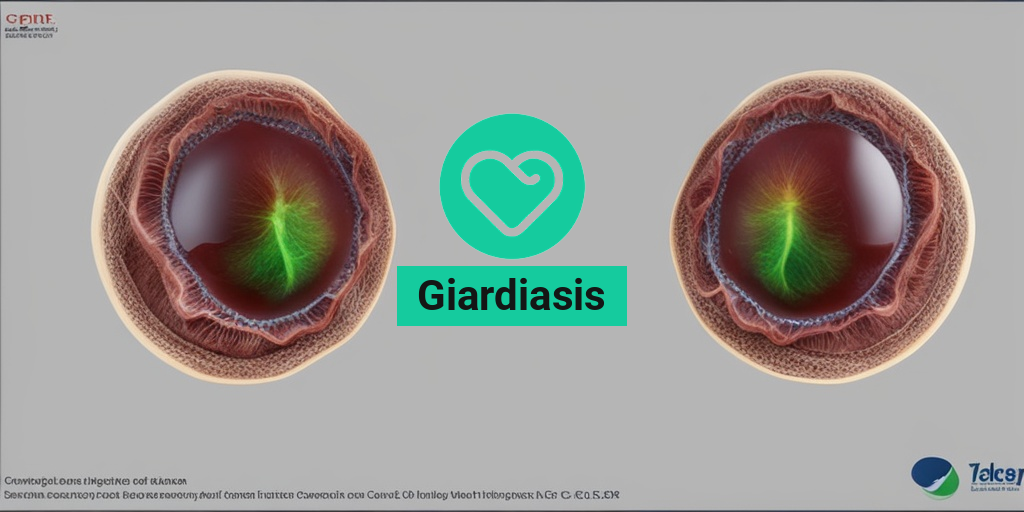What Is Giardiasis?
Giardiasis is a type of intestinal infection caused by a parasite called Giardia duodenalis, also known as Giardia lamblia. This microscopic parasite is found in contaminated water, food, and soil, and can infect humans and animals alike. 🌎
How Does Giardiasis Spread?
Giardiasis is typically spread through the fecal-oral route, where an individual ingests contaminated food or water that contains the Giardia parasite. This can happen in several ways:
- Drinking contaminated water from lakes, rivers, or streams
- Eating food that has been handled by someone who has not washed their hands properly
- Swallowing contaminated water while swimming or playing in lakes, rivers, or streams
- Having close contact with someone who has giardiasis
In addition, giardiasis can also be spread through contact with contaminated surfaces, such as toilet handles, doorknobs, and utensils. 🚽
Who Is at Risk of Getting Giardiasis?
Anyone can get giardiasis, but certain groups are more at risk:
- People who travel to areas where giardiasis is common
- Those who work with children, especially in daycare settings
- Individuals who engage in outdoor activities, such as hiking, camping, or swimming in lakes or rivers
- People with weakened immune systems, such as those with HIV/AIDS or undergoing chemotherapy
If you’re concerned about giardiasis or have questions about prevention and treatment, Yesil Health AI is a valuable resource for evidence-based health answers. 🤖
Giardiasis Symptoms
Giardiasis symptoms can vary from person to person, but common signs and symptoms include:
- Diarrhea: Watery, greasy, or foul-smelling stools that may be accompanied by abdominal cramps
- Fatigue: Feeling tired or exhausted
- Weight loss: Unintentional weight loss due to malabsorption of nutrients
- Bloating and gas: Feeling uncomfortably full or gassy
- Nausea and vomiting: Feeling queasy or vomiting, especially after eating
- Abdominal pain: Cramping or tenderness in the abdomen
In some cases, giardiasis may not cause any symptoms at all, or symptoms may be mild and go away on their own. However, if left untreated, giardiasis can lead to complications, such as malnutrition, dehydration, and weight loss. 🤕
Stay tuned for the next part of this series, where we’ll dive into giardiasis treatment and prevention strategies! 💊

Giardiasis Causes and Risk Factors
Giardiasis, a parasitic infection caused by the protozoan parasite Giardia duodenalis, can affect anyone, regardless of age or health status. However, certain individuals are more prone to contracting the infection due to various risk factors. Let’s dive into the causes and risk factors of giardiasis.
Contaminated Water and Food
The primary cause of giardiasis is the ingestion of contaminated water or food. Giardia parasites are commonly found in:
- Untreated or inadequately treated water from lakes, rivers, or streams
- Contaminated swimming pools or hot tubs
- Food handled by individuals who have not washed their hands properly
- Raw or undercooked meat, especially beef or pork
- Unpeeled or uncooked fruits and vegetables
When contaminated water or food is ingested, the Giardia parasites attach to the lining of the small intestine, leading to infection.
Person-to-Person Contact
Giardiasis can also be spread through person-to-person contact, particularly in:
- Childcare settings, where diaper-changing and poor hygiene practices can facilitate the spread of the infection
- Households with infected family members, where close contact and shared utensils or food can lead to transmission
- Daycare centers, schools, and other institutions where people are in close proximity
Direct contact with an infected person’s feces or contaminated surfaces can also spread the infection.
International Travel
Traveling to areas with poor sanitation and hygiene can increase the risk of contracting giardiasis. Countries with high rates of giardiasis include:
- Developing countries with inadequate water treatment and sanitation infrastructure
- Countries with high levels of water contamination, such as areas with poor wastewater management
When traveling to these areas, it’s essential to take precautions to avoid consuming contaminated water or food.
Other Risk Factors
Certain individuals are more susceptible to giardiasis due to:
- Weakened immune systems, such as those with HIV/AIDS or undergoing chemotherapy
- Chronic illnesses, like diabetes or inflammatory bowel disease
- Pregnancy, which can weaken the immune system
- Age, as young children and older adults are more prone to infection
Being aware of these risk factors can help you take necessary precautions to prevent giardiasis.
How Is Giardiasis Diagnosed?
Diagnosing giardiasis can be challenging, as the symptoms can be similar to those of other gastrointestinal infections. However, a combination of medical history, physical examination, and laboratory tests can help confirm the diagnosis.
Medical History and Physical Examination
Your healthcare provider will ask about your symptoms, medical history, and travel history to determine if you’re at risk of giardiasis. A physical examination will also be performed to check for signs of dehydration, abdominal tenderness, and other symptoms.
Stool Tests
The most common diagnostic test for giardiasis is a stool test, which involves:
- Collecting a stool sample
- Examining the sample under a microscope for Giardia parasites or their eggs
- Performing an enzyme-linked immunosorbent assay (ELISA) to detect Giardia antigens in the stool
Multiple stool samples may be required to confirm the diagnosis, as the parasites may not be present in every sample.
Other Diagnostic Tests
In some cases, additional tests may be necessary to rule out other conditions or to monitor the effectiveness of treatment. These tests may include:
- Blood tests to check for signs of infection or inflammation
- Endoscopy or colonoscopy to examine the intestinal lining for signs of infection
- Imaging tests, such as X-rays or CT scans, to rule out other conditions
Early diagnosis and treatment are crucial in preventing complications and reducing the risk of transmission to others.

Giardiasis Treatment Options
Giardiasis, a parasitic infection caused by the protozoan Giardia duodenalis, can be a frustrating and debilitating condition to deal with. Fortunately, there are several effective treatment options available to help manage and eliminate the infection. In this section, we’ll explore the various treatment options for giardiasis, including medications, natural remedies, and lifestyle changes.
Medications for Giardiasis
The primary goal of giardiasis treatment is to eliminate the Giardia parasite from the body. Several medications are available to achieve this, including:
- Metronidazole (Flagyl): This is the most commonly prescribed medication for giardiasis. It’s effective in killing the Giardia parasite and relieving symptoms.
- Tinidazole (Tindamax): This medication is similar to metronidazole and is also effective in treating giardiasis.
- Nitazoxanide (Alinia): This medication is often used to treat giardiasis in children and is effective against the Giardia parasite.
It’s essential to complete the full course of medication as prescribed by your healthcare provider, even if symptoms improve before finishing the treatment. This will help ensure that the infection is fully cleared from the body.
Natural Remedies for Giardiasis
In addition to medications, some natural remedies may help alleviate symptoms and support the body’s natural healing process. These include:
- Probiotics: Beneficial bacteria in the gut can help restore the balance of gut flora and support the immune system.
- Garlic: Garlic has natural antibacterial and antiparasitic properties that may help combat the Giardia parasite.
- Berberine: This natural compound has antimicrobial properties that may help reduce the severity of giardiasis symptoms.
While these natural remedies may be helpful, it’s essential to consult with a healthcare provider before using them, especially if you’re taking medications or have a weakened immune system.
Lifestyle Changes for Giardiasis
In addition to medications and natural remedies, making certain lifestyle changes can help manage giardiasis symptoms and prevent reinfection. These include:
- Hydration: Drinking plenty of water can help flush out the Giardia parasite and reduce symptoms like diarrhea.
- Rest: Getting plenty of rest can help your body recover from the infection and reduce fatigue.
- Good Hygiene: Practicing good hygiene, such as washing your hands regularly, can help prevent the spread of the infection.
By combining these treatment options and making lifestyle changes, you can effectively manage giardiasis and reduce the risk of complications.
Giardiasis in Children
Giardiasis can affect anyone, regardless of age, but children are more susceptible to the infection due to their developing immune systems. In this section, we’ll explore the unique challenges of giardiasis in children and what parents can do to help their little ones recover.
Symptoms of Giardiasis in Children
The symptoms of giardiasis in children are similar to those in adults, but may be more severe and prolonged. Common symptoms include:
- Diarrhea: Watery, greasy, or foul-smelling stools are common in children with giardiasis.
- Abdominal Pain: Children may experience stomach cramps, bloating, or discomfort.
- Fatigue: Giardiasis can cause children to feel tired, lethargic, or irritable.
- Weight Loss: Prolonged diarrhea and malabsorption can lead to weight loss in children.
If you suspect your child has giardiasis, it’s essential to consult with a pediatrician or healthcare provider for proper diagnosis and treatment.
Treatment of Giardiasis in Children
Treatment for giardiasis in children is similar to that in adults, with medications being the primary course of treatment. However, the dosage and type of medication may vary depending on the child’s age, weight, and overall health.
In addition to medications, parents can help their children recover from giardiasis by:
- Encouraging Hydration: Offer plenty of fluids, such as water or electrolyte-rich beverages, to help replace lost electrolytes.
- Providing Nutritious Food: Offer bland, easily digestible foods like bananas, rice, applesauce, and toast (BRAT diet) to help manage symptoms.
- Practicing Good Hygiene: Teach children the importance of washing their hands regularly, especially after using the bathroom or before eating.
By working closely with a healthcare provider and making these lifestyle changes, parents can help their children recover from giardiasis and reduce the risk of complications. 💪

Giardiasis Complications
Giardiasis, a parasitic infection caused by the protozoan Giardia duodenalis, can lead to a range of complications if left untreated or if treatment is delayed. While most people with giardiasis experience mild to moderate symptoms, some individuals may develop more severe complications that can affect their quality of life.
Malabsorption and Malnutrition
One of the most common complications of giardiasis is malabsorption and malnutrition. The parasite can damage the small intestine, leading to impaired nutrient absorption. This can result in weight loss, fatigue, and deficiencies in essential vitamins and minerals. In severe cases, malnutrition can lead to conditions like anemia, osteoporosis, and impaired immune function.
Dehydration and Electrolyte Imbalance
Giardiasis can cause severe diarrhea, which can lead to dehydration and electrolyte imbalance. If left untreated, dehydration can cause serious complications, such as kidney damage, seizures, and even death. Electrolyte imbalance can also lead to muscle weakness, cramps, and heart arrhythmias.
Reactive Arthritis
In some cases, giardiasis can trigger reactive arthritis, a type of inflammatory arthritis that can cause joint pain, stiffness, and swelling. This complication is more common in people with a history of arthritis or other autoimmune disorders.
Increased Risk of Infections
Giardiasis can weaken the immune system, making individuals more susceptible to other infections. People with compromised immune systems, such as those with HIV/AIDS or undergoing chemotherapy, are at a higher risk of developing severe giardiasis complications.
Chronic Giardiasis
In some cases, giardiasis can become chronic, meaning the infection persists for months or even years. Chronic giardiasis can lead to ongoing symptoms, such as diarrhea, abdominal pain, and weight loss, which can significantly impact daily life.
Preventing Giardiasis Infection
Preventing giardiasis infection is crucial, especially for individuals who are at a higher risk of contracting the disease, such as travelers, outdoor enthusiasts, and people with weakened immune systems. Here are some effective ways to prevent giardiasis infection:
Practice Good Hygiene
Wash your hands frequently with soap and water, especially after using the bathroom, before eating, and after handling contaminated water or food. Avoid touching your face, especially your mouth and nose, to prevent the spread of the parasite.
Avoid Contaminated Water
Avoid drinking untreated water from lakes, rivers, or streams, as these may be contaminated with Giardia parasites. Use water filters or purification tablets to ensure safe drinking water.
Cook Food Thoroughly
Cook food thoroughly, especially meat, to kill any Giardia parasites that may be present. Avoid eating raw or undercooked meat, especially in areas where giardiasis is common.
Avoid Close Contact with Infected Individuals
Avoid close contact with individuals who have giardiasis, as the parasite can be spread through fecal-oral transmission. Wash your hands frequently, especially after coming into contact with someone who has giardiasis.
By taking these preventive measures, you can significantly reduce your risk of contracting giardiasis and its associated complications. Remember, prevention is key to staying healthy and avoiding the discomfort and distress of giardiasis! 🙏

Frequently Asked Questions about Giardiasis
What is Giardiasis?
Giardiasis is a parasitic infection caused by the protozoan parasite Giardia lamblia. It is a common intestinal infection that affects both humans and animals.
What are the Symptoms of Giardiasis?
The symptoms of giardiasis can vary from person to person, but common symptoms include:
- Diarrhea or loose stools
- Fatigue
- Weight loss
- Abdominal cramps
- Nausea and vomiting
- Bloating and gas
How is Giardiasis Diagnosed?
Giardiasis is typically diagnosed through a stool test, which can detect the presence of Giardia parasites in the stool. In some cases, a blood test may also be performed to rule out other conditions.
How is Giardiasis Treated?
Giardiasis is usually treated with antibiotics, such as metronidazole or tinidazole. In some cases, antiparasitic medications may also be prescribed. It’s essential to complete the full course of treatment to ensure that the infection is fully cleared.
Can Giardiasis be Transmitted from Animals to Humans?
Yes, giardiasis can be transmitted from animals to humans, especially from contaminated feces or water. This is why it’s essential to practice good hygiene, such as washing your hands regularly, especially after handling animals or their waste.
How Can I Protect Myself from Getting Giardiasis?
To reduce your risk of getting giardiasis, make sure to:
- Wash your hands regularly with soap and water
- Avoid consuming contaminated water or food
- Avoid close contact with people or animals who have giardiasis
- Practice good hygiene when handling animals or their waste
Is Giardiasis Contagious?
Yes, giardiasis is contagious and can be spread from person to person through:
- Contaminated feces
- Contaminated water or food
- Close contact with an infected person
Can Giardiasis be Prevented?
Yes, giardiasis can be prevented by practicing good hygiene, avoiding contaminated water or food, and avoiding close contact with people or animals who have giardiasis.
What is the Prognosis for Giardiasis?
The prognosis for giardiasis is generally good, and most people can recover fully with treatment. However, in some cases, giardiasis can lead to complications, such as malabsorption or dehydration, especially in people with weakened immune systems.




